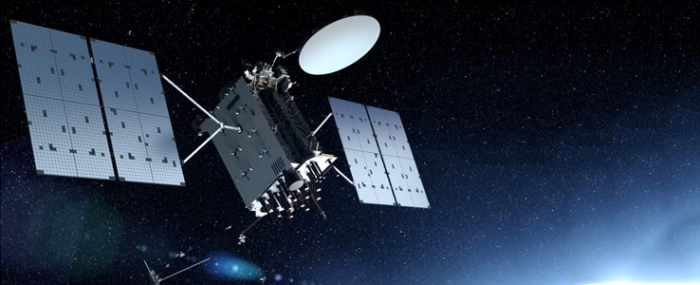
Australia scraps $5 billion military satellite project
The project to deliver Australia’s first sovereign-controlled satellite communication system was awarded to Lockheed Martin in 2023. The government says it will prioritize a multi-orbit capability.
Australia has scrapped a USD 5 billion dollar military satellite project with US defence contractor Lockheed Martin. The military will now shift its focus to a multi-orbit system, the Department of Defence said.
The project was awarded to Lockheed Martin last year after a competitive tender process that included big companies like Airbus and Northrop Grumman. The Geostationary Earth Orbit (GEO) satellite communications system would have delivered the country’s first sovereign-controlled satellite communication system over the Indo-Pacific ocean regions, according to Reuters.
Defence industry sources quoted by The Australian newspaper suggested that insufficient funding was allocated to start the program, despite its strategic importance.
“With the acceleration in space technologies and evolving threats in space since the project’s commencement, Defence has assessed that a single orbit GEO-based satellite communications system would not meet strategic priorities,” Australia’s Department of Defence said in a statement.
It added that the government would instead prioritize a multi-orbit capability to increase resilience for the armed forces.
In a radio interview with the Australian Broadcasting Corporation, Prime Minister Anthony Albanese said while the country’s defense budget was increasing, his government was prioritizing its purchases.
“We’re busy prioritizing all of our purchases when it comes to defense assets. We’ve got a considerable increase in our defense budget and we’ll make sure all of the decisions that we make are in our national interest,” Prime Minister Anthony Albanese said. “We are not only seeing advances with the AUKUS arrangements being on track and on time and on budget, we’re seeing our capabilities increased with increased asset purchases. We are also very much interested in this being part of our ‘Future Made in Australia’ agenda.”
The project had aimed to launch several large military-grade satellites and also involve ground stations, new satellite communications operations centres, and a central management system, according to a report in The Conversation.
The Space Industry Association of Australia (SIAA) expressed “profound disappointment” with the government’s decision.
“While other OECD [Organisation for Economic Co-operation and Development] nations see sovereign space capability as critical to creating high-tech, high-value jobs and a military advantage, in our own backyard we seem to be doing the exact opposite,” SIAA chairman, Jeremy Hallett, said in a statement.


